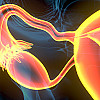Recent Blog Articles

Lead poisoning: What parents should know and do

How does waiting on prostate cancer treatment affect survival?

Does running cause arthritis?

Is alcohol and weight loss surgery a risky combination?

Preventing ovarian cancer: Should women consider removing fallopian tubes?

Healthier planet, healthier people

Is snuff really safer than smoking?

Will miscarriage care remain available?

Considering collagen drinks and supplements?

Does less TV time lower your risk for dementia?
Intracranial Aneurysms
What Is It?
Arteries are tunnels that blood travels through to get from the heart to various parts of the body. An aneurysm is a bulge in an artery, similar to the bulge that appears at a weak spot of a hose, where the water pressure pushes out to create a bubble. Like the hose bubble, the area of an artery where an aneurysm appears is weak and has the potential to burst.
Aneurysms most frequently occur in the arteries that bring blood to the brain. Brain aneurysms are also known as intracranial aneurysms or berry aneurysms (because most of the time they look like little round berries). They occur in up to 6% of people. In general, most brain aneurysms are small, rarely cause symptoms and have a very low risk of rupture.
To continue reading this article, you must log in.
Subscribe to Harvard Health Online for immediate access to health news and information from Harvard Medical School.
- Research health conditions
- Check your symptoms
- Prepare for a doctor's visit or test
- Find the best treatments and procedures for you
- Explore options for better nutrition and exercise
I'd like to receive access to Harvard Health Online for only $4.99 a month.
Sign Me UpAlready a member? Login ».
Disclaimer:
As a service to our readers, Harvard Health Publishing provides access to our library of archived content. Please note the date of last review or update on all articles.
No content on this site, regardless of date, should ever be used as a substitute for direct medical advice from your doctor or other qualified clinician.
Free Healthbeat Signup
Get the latest in health news delivered to your inbox!
